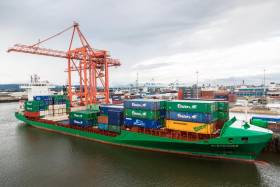Displaying items by tag: Radio Surveys
Statutory Radio Surveys Under Way For Irish Seagoing Vessels
#RadioSurvey - Further to this summer’s tender call for a panel of radio surveyors, the panel is now established and authors to conducts statutory radio surveys on Irish seagoing vessels, including fishing vessels.
Owners of vessels in the categories listed below requiring a periodical/annual radio survey should contact a Panel Radio Surveyor to arrange these surveys, which will be conducted from now till 20 October 2020:
- Irish fishing vessels of 15 metres length overall or more.
- Irish domestic trading passenger ships of Classes B, C, D, II(A), III and VI.
- Irish domestic trading cargo vessels of 300GT or more, but less than 500GT.
On completion of the surveys, the panel surveyors will inform the Marine Survey Office (MSO) regarding the issue of any required statutory certificate to the vessel. The MSO will not issue statutory certificates to vessels that have not completed the required statutory radio survey.
Owners requiring an ‘initial’ radio survey, which includes all flag-in and new-build vessels, must contact the MSO, preferably by email at [email protected].
Where the statutory certificates for a vessel are issued by a recognised organisation on behalf of the Department of Transport, Tourism and Sport, the operator of the vessel should continue to utilise the services of the recognised organisation for the completion of statutory radio surveys.
The contact details for the Panel of Surveyors are available on the DTTAS website HERE.
The MSO is also appointing a panel to conduct surveys of fishing vessels of less than 15m length overall, as previously reported on Afloat.ie.






























































